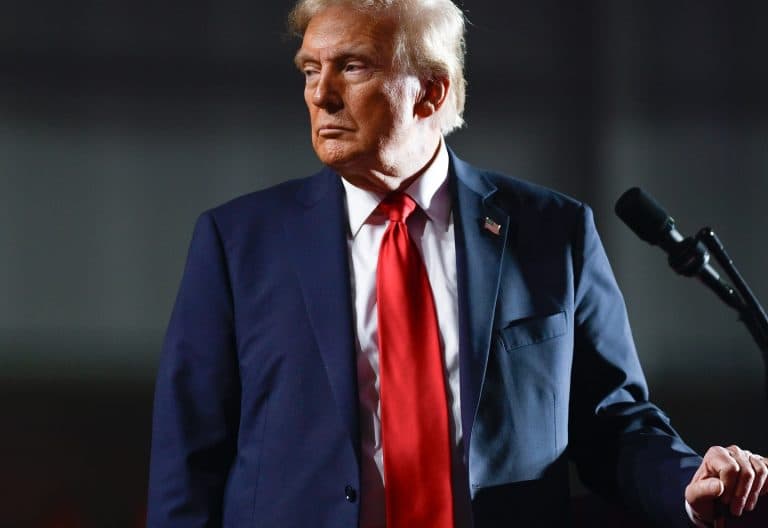We're loading the full news article for you. This includes the article content, images, author information, and related articles.
The potential meeting between President Donald Trump and Zohran Mamdani, the Kampala-born new mayor of New York, carries significant implications for US-Africa policy, including future trade deals and diplomatic priorities relevant to Kenya and the East Africa region.

In a significant reversal of tone, United States President Donald Trump announced on Sunday, November 16, 2025, his intention to meet with New York City's mayor-elect, Zohran Mamdani. Speaking to reporters in West Palm Beach, Florida, before returning to Washington D.C., President Trump stated, “The mayor of New York, I will say, would like to meet with us. We'll work something out.” White House press secretary Karoline Leavitt later confirmed that the president was referring to Mr. Mamdani, though no specific date for the meeting has been set. This development marks a potential truce between two figures who have been stark political adversaries.
Throughout the 2025 mayoral campaign, President Trump launched scathing attacks on Mamdani, a 34-year-old progressive Democrat and member of the Democratic Socialists of America. The president repeatedly labeled him a “communist” and a “lunatic,” warning that his election would ruin New York City. Trump also threatened to cut federal funding to the city and deport Mamdani, who was born in Kampala, Uganda, and became a naturalized US citizen in 2018. For his part, Mamdani, who defeated former New York Governor Andrew Cuomo, campaigned on a platform starkly opposed to Trump's agenda, particularly on issues of immigration and social welfare. In his victory speech, Mamdani positioned New York as a model for how to defeat the president's political brand.
For Kenya and the wider East Africa region, Mamdani's rise is a significant event. Born in Kampala, Uganda, to esteemed Indian-Ugandan academic Mahmood Mamdani and Indian filmmaker Mira Nair, his heritage is deeply rooted in the region. He lived in Kampala until age five and spent time in Cape Town, South Africa, before his family settled in New York. His background as a first-generation African immigrant ascending to one of the most powerful political offices in the United States resonates deeply across the continent, viewed by some as a triumph of the diaspora and a symbol of a new generation of leadership. His election as New York's first Muslim, South Asian, and African-born mayor is a historic milestone.
The prospective meeting occurs within a complex context for US-Kenya relations. During his first term, President Trump initiated a Strategic Partnership with Kenya in August 2018, alongside then-President Uhuru Kenyatta, focusing on economic prosperity, defense, and governance. In February 2020, his administration announced its intent to negotiate a comprehensive free trade agreement with Kenya, envisioned as a model for future pacts with other African nations. However, his “America First” approach has also created unpredictability, particularly concerning multilateral agreements and foreign aid. The African Growth and Opportunity Act (AGOA), which grants duty-free access to the US market for goods from eligible African countries, including Kenya, is a key point of concern. Kenyan President William Ruto has been actively lobbying for its extension, a topic he discussed in New York in September 2025. A constructive relationship between the Trump administration and a mayor with deep African roots could, in theory, create a more favorable environment for these negotiations. President Ruto has previously expressed confidence that relations would blossom under a second Trump term. However, a potential Trump administration tariff hike remains a significant risk for Kenyan exports.
Despite the history of animosity, both sides have recently signaled a willingness to engage. After his election, Mamdani stated he was willing to work with anyone, including the president, if it would benefit New Yorkers. A spokesperson for the mayor-elect reiterated this stance following Trump's comments, highlighting Mamdani's previous remarks about the critical importance of the relationship with the White House for the city's success. President Trump, in turn, has softened his rhetoric, stating, “We want to see everything work out well for New York.” This pragmatic shift suggests a recognition from both leaders that cooperation is necessary for governing. The outcome of their potential meeting will be closely watched in Nairobi and other East African capitals, as it may offer the first tangible sign of the Trump administration's approach to a continent increasingly represented in the high echelons of American political power.
Keep the conversation in one place—threads here stay linked to the story and in the forums.
Sign in to start a discussion
Start a conversation about this story and keep it linked here.
Other hot threads
E-sports and Gaming Community in Kenya
Active 9 months ago
The Role of Technology in Modern Agriculture (AgriTech)
Active 9 months ago
Popular Recreational Activities Across Counties
Active 9 months ago
Investing in Youth Sports Development Programs
Active 9 months ago